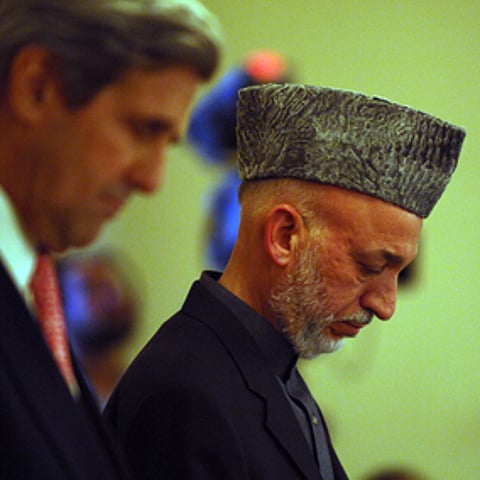Photo: Flickr/ US Embassy Kabul
What happens next?
By 2007-08, delegations from NATO member states visiting Afghanistan were already giving up on the country's seemingly intractable problems. The perspectives of the political advisers to the Office of the EU Special Representative were sought out then for their objectivity, informed by regular field visits beyond Kabul to garner wider Afghan opinion in assessing political and security developments from regional and local perspectives. By 2009, field trips were only made by air, usually to the secure 'bed and breakfasts' provided by the Provincial Reconstruction Teams located throughout the country and, at a stretch, to ISAF's forward operating bases. Even these more limited attempts to access broader Afghan opinion are no longer possible. NATO handed over lead-security responsibilities to the Afghan government security forces in mid-2013, well over a year ahead of the security transition's original timeline of the end of 2014. "In the land of the blind," so the saying goes, "the one eyed man is king." The international community in Afghanistan operates under ever-thicker blindfolds.
The usual question posed by visiting delegations following political and security briefings was "what can we do?" The lack of workable answers to this question only underlined the inability of the international community (defined here as the US and its main allies) to influence internal events in Afghanistan by this stage. As reports in the international media increasingly focused on the corruption and ineffectiveness of the Afghan government, domestic opposition to continuing an apparently pointless and costly military engagement in Afghanistan mounted within the NATO states that mattered. By 2010, growing donor fatigue and the deepening global financial crisis added to the urgency of demands within NATO member-states to radically change the nature of the international engagement inside Afghanistan. Getting the bulk of combat forces out of Afghanistan by the end of 2014 has become the overriding objective for the main troop-contributing states. How this will affect security in Afghanistan remains uncertain.

